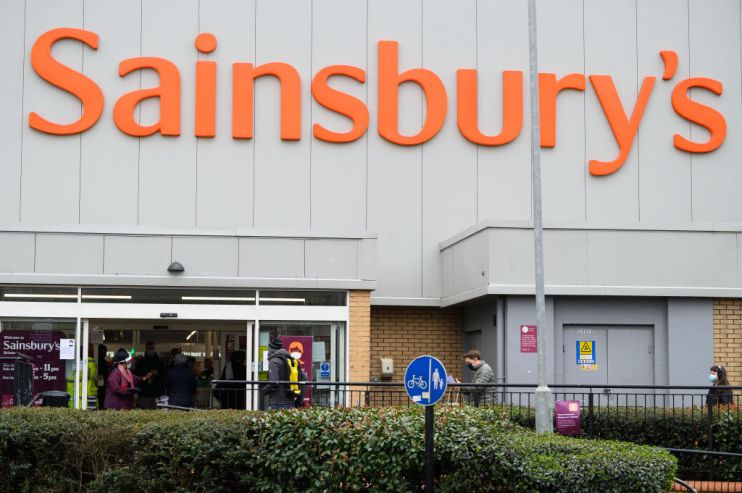Sainsbury’s refocuses on food in new growth strategy with ‘progressive’ dividends and buybacks too

Sainsbury’s has ramped up its bid to eat into the grocery sector, as it looks to rapidly make profits with investment, new stores and a share buyback scheme.
The supermarket giant said it wants to put “food back at the heart of Sainsbury’s” offering customers more choice and trying to ” attract more bigger basket primary shoppers”.
Currently only 15 per cent of its supermarkets offer the full food range, with the new plan to focus on 180 of these highest potential stores.
This comes after Sainsbury’s announced last month it will undertake a “phased withdrawal” from its banking efforts, as it refocused on food, in a move which could impact its 1.9m customers.
It also said there would be a drive to save £1bn pounds in structural cost reductions, and ramping up technology across its infrastructure.
Sainsbury’s said it would expect profit growth from the start of the plan, and would increase capital expenditure by between £800m-£850m each year for the next three years.
Other areas of investment include £70m into its electric vehicle charging network, and open around 75 new Sainsbury’s local convenience stores across the UK.
The supermarket giant also said it will pursue a”progressive dividend policy” from the beginning of the next financial year, and will start a share buyback of £200m, supported by free cash flow of “at least” £500m.
Sainsbury’s is Britain’s second-biggest supermarket, behind Tesco. In its most recent report to markets in early January, Sainsbury’s said its performance over the festive period saw third quarter food sales grow 9.3 per cent while Christmas grocery sales jumped up 8.6 per cent.
Its share price has been almost three per cent up in the past year.
Simon Roberts, chief executive of J Sainsbury, said “We’re going to build on what’s driven our success since 2020. We’re determined to be First Choice for Food, ensuring more customers in more of our stores can enjoy more brilliant Sainsbury’s food.
“That means more space for our food offer, while still delivering the general merchandise products customers want from us. That way, not only will we find more ways to delight new and existing customers, we will also continue growing volume market share.
“While I’m proud of the progress we’ve made to date, we’re only just at the beginning of rediscovering quite what this business is capable of. By taking Sainsbury’s to the next level, delivering for customers and colleagues, we will also deliver enhanced returns for shareholders through a share buyback and committing to a progressive dividend.”
Russ Mould, investment director at AJ Bell said Sainsbury’s “unveiled bold plans to make the company bigger in the future.
“There is a clear vision to get customers to spend more money, attract more people to its stores, and drive more traffic to Argos’ website, stores and supermarket concessions. At the same time, Sainsbury’s wants to be a more efficient business and have staff and customers rate it more highly.
“To Sainsbury’s credit, its performance has been good in recent years and there is finally an energy about the business which has been absent for decades.”
“However, its growth plan is not something that is guaranteed to work its magic. It’s not hard to dream up such a wish list to improve the company’s fortunes as it is basic business sense. Achieving the goal is another matter and it will cost money – something the market typically hates. Sainsbury’s shares fell on the news, but interestingly so did Tesco and Marks & Spencer as they face new competitive threats.
Markets were not as enthused about Sainsbury’s plans, with its share price dropping this morning by around 3.62 per cent, to around 2.65p.
